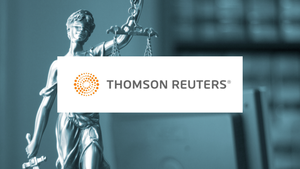A US judge has rejected all the copyright infringement defences - including fair use - put forward by Ross Intelligence, an AI company that was sued by Thomson Reuters, saying “none of Ross’s possible defences holds water, I reject them all”, and changing his previous position that the fair use claim should be considered by a jury.
With dozens of copyright lawsuits against AI companies currently working their way through the US courts, and with the AI companies relying heavily on fair use to defend those lawsuits, this is an important ruling. A number of those lawsuits have been filed by music companies, meaning this judgement could be a watershed moment for the music industry’s attempts to defend itself against the onslaught of AI.
Noting that he reached a different conclusion on the fair use claim when first considering the Thomson Reuters lawsuit against Ross back in 2023, judge Stephanos Bibas writes, “a smart man knows when he is right; a wise man knows when he is wrong. Wisdom does not always find me, so I try to embrace it when it does - even if it comes late, as it did here”.
That said, Bibas is also keen to note the AI model in this dispute is not generative AI. “Because the AI landscape is changing rapidly”, his ruling continues, “I note for readers that only non-generative AI is before me today”. That’s an important distinction given that many of the big AI lawsuits relate to generative AI models that have been trained on existing third party content.
Copyright industries like the music industry argue that if any AI company copies existing content onto a server in order to train an AI model, they must first get permission from the relevant copyright owners. However, many AI companies argue that training a model is fair use under American copyright law, which would mean no permission is required.
Ross developed an AI-powered legal-research search engine. To train its model it secured training data from a company called LegalEase, but that data had been built from content created by Thomson Reuters owned company Westlaw. Thomson Reuters claimed that Ross had infringed the copyright in so called headnotes, summarising key points in legal cases, that Westlaw published.
The tech start-up provided various arguments for why its training data did not infringe the copyrights of Thomson Reuters, including the fair use defence that has been employed by many other AI companies accused of copyright infringement.
In his new judgement, Bibas explains that there are various factors to consider when assessing a claim of fair use, though the most important are “the use’s purpose and character”, including whether the use is transformative - which would favour a fair use claim - and “how Ross’s use affected the copyrighted work’s value or potential market”. On all those factors, the judge says his analysis favours Thomson Reuters.
In his 2023 ruling Bibas declined to issue a summary judgment on the fair use claim largely because of a precedent set in earlier copyright cases which involved the intermediate copying of computer programmes, something which was considered fair use by the courts at the time. However, he no longer believes those precedents are relevant to this case.
Instead his new ruling is very much informed by the landmark 2023 Supreme Court judgement that considered whether Andy Warhol’s reworking of a photo of Prince to create a new artwork was fair use.
That ruling clarified what constitutes transformative use, concluding that Warhol’s artworks were not a fair use of the Prince image. “This case fits more neatly” into that “newer framework” set by the Warhol judgement, Bibas writes, arguing that because “Ross took the headnotes to make it easier to develop a competing legal research tool” the use “is not transformative”.
That the judge has referenced the Warhol ruling in coming to his conclusions in this case is significant, because the copyright industries have argued that the Warhol ruling on what is and is not transformative use helps support their claim that AI training is not fair use.
Welcoming the ruling a Thomson Reuters spokesperson says, “We are pleased that the court granted summary judgment in our favour and concluded that Westlaw’s editorial content, created and maintained by our attorney editors, is protected by copyright and cannot be used without our consent. The copying of our content was not ‘fair use’”.
Ross actually ceased operations in January 2021, citing the cost of defending itself in this legal battle. However, the case continued because Thomson Reuters is seeking damages for the alleged infringement.

